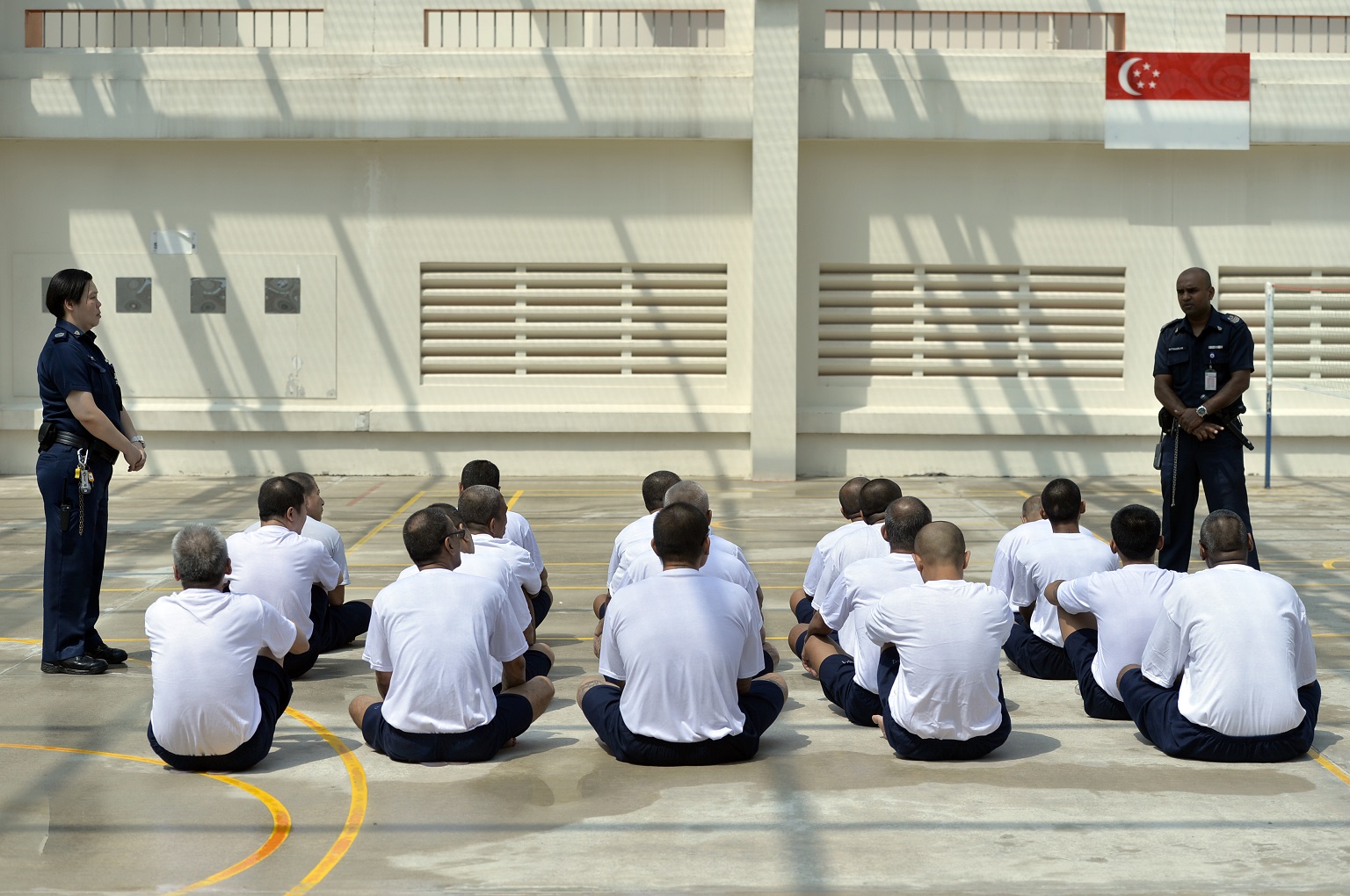Parliament: Criminal Law (Temporary Provisions) Act that allows detention without trial extended after heated debate
Sign up now: Get ST's newsletters delivered to your inbox

The latest version of the Criminal Law (Temporary Provisions) Act includes changes such as giving the Home Affairs Minister the final say on whether detention is necessary for reasons of public safety, peace and good order.
PHOTO: ST FILE
SINGAPORE - A law that allows the detention of criminal suspects without trial has been extended for another five years from Oct 21 next year - but not without heated debate in Parliament.
Over four hours on Tuesday, 11 MPs spoke on the Criminal Law (Temporary Provisions) Bill, raising concerns over issues such as the powers that it now gives the Home Affairs Minister. While this is the 14th time the law is extended, the latest version includes changes such as giving the minister the final say on whether detention is necessary for reasons of public safety, peace and good order.
Of the 89 MPs present, 10 voted against the Bill and two abstained.
Those who voted no include all eight present MPs from the Workers' Party (WP). The party had supported the Bill during previous extensions.
The remaining two dissenters were Nominated MPs Kok Heng Leun and Azmoon Ahmad. NMPs Mahdev Mohan and Kuik Shiao-Yin abstained.
There was some drama over the voting itself, with the electronic system mixing up WP MP Muhamad Faisal Manap - who had voted no - and People's Action Party MP Muhammad Faishal Ibrahim - who had voted yes. The second time, Deputy Prime Minister Tharman Shanmugaratnam's "yes" vote was not registered.
The debate began with Home Affairs and Law Minister K. Shanmugam seeking to explain the proposed amendments to the Bill.
They include prescibing a list of offences that will now come under the Act - secret society activities, unlicensed moneylending, drug trafficking, kidnapping and organised crime.
Previously, this was not spelled out, with only a Section 30 that lays out the powers of the minister to make decisions on police supervision orders and detention orders.
"We decided to list the types of criminal activities. There is more certainty and clarity in such an approach," said Mr Shanmugam.
The move to amend the 63-year-old Act follows the Court of Appeal's decision in 2015 to free alleged Singaporean match-fixing kingpin Dan Tan.
The court said that it did not accept that the Act "has a loose or open-ended remit". It noted that while Tan may have run an international match-fixing syndicate from Singapore, his activities did not pose a threat to the public safety, peace and good order here.
The Act is traditionally used in situations where it is not possible to prosecute in court because witnesses are fearful or unwilling to testify, for example when former secret society members might refuse to give testimony for fear of reprisal.
Other changes to the Act included a clause that now makes the minister's decision on who to detain final in two aspects: Whether a person is linked to criminal activities and whether detention is necessary for reasons of public safety, peace and good order.
This means that the minister's decision on the facts on the case under the Act are final. It cannot be appealed or substituted.
A number of MPs rose to query Mr Shanmugam about this, with Mr Louis Ng (Nee Soon GRC) and NMP Kok Heng Leun asking if this meant that judicial review is now excluded.
The minister said the provision was not new and has always been accepted by the courts.
"It does not oust judicial review," he stressed.
He added that the courts can still review the minister's decisions based on the traditional tests of illegality, irrationality, and procedural impropriety.
He also tackled questions over whether listing the offences under the Act would increase the powers of the minister and reduce pressure to explain and justify each detention.
He said the minister would now have to fulfil two criteria: firstly that the requirements under Section 30 are satisfied and secondly that the offence is listed on the schedule.
"So the detainees are no worse off, the minister is no better off. The same requirements continue. In addition, the minister has got to show that it's listed in the schedule. So how does it increase the powers?"
Under other amendments, independent advisory committees that review police supervision and criminal detention orders will be chaired by sitting Judges of the Supreme Court from March this year (2018).
NMP Mahdev Mohan asked if this would change the task of the advisory committees, to which Mr Shanmugam said it would not. He also addressed Mr Pritam Singh's (Aljunied GRC) concerns on whether having judges on the committees would conflate the roles of the judges and the executive.
"No, not at all. The judges sit as part of the advisory committee, they give their views, they look at the evidence. If they feel that some things need to be checked further they can do so."
He added: "So having judges who are independent adds considerably to the robustness of the process."
Mr Murali Pillai (Bukit Batok) queried why the Ministry of Home Affairs was seeking an early extension of the Act which would only expire in Oct 20, 2019. To this, Mr Shanmugam said they had decided to include the extension along with the proposed amendments.
"The sooner the better we move in line with everything else... So we put it all together and because we are coming to Parliament for the amendments we said let's ask for another five years at the same time."
Mr Shanmugam concluded by saying that the Act helps to maintain public safety and order.
"The Act is an essential tool in our arsenal," he said. "The path we have taken is good for society."


